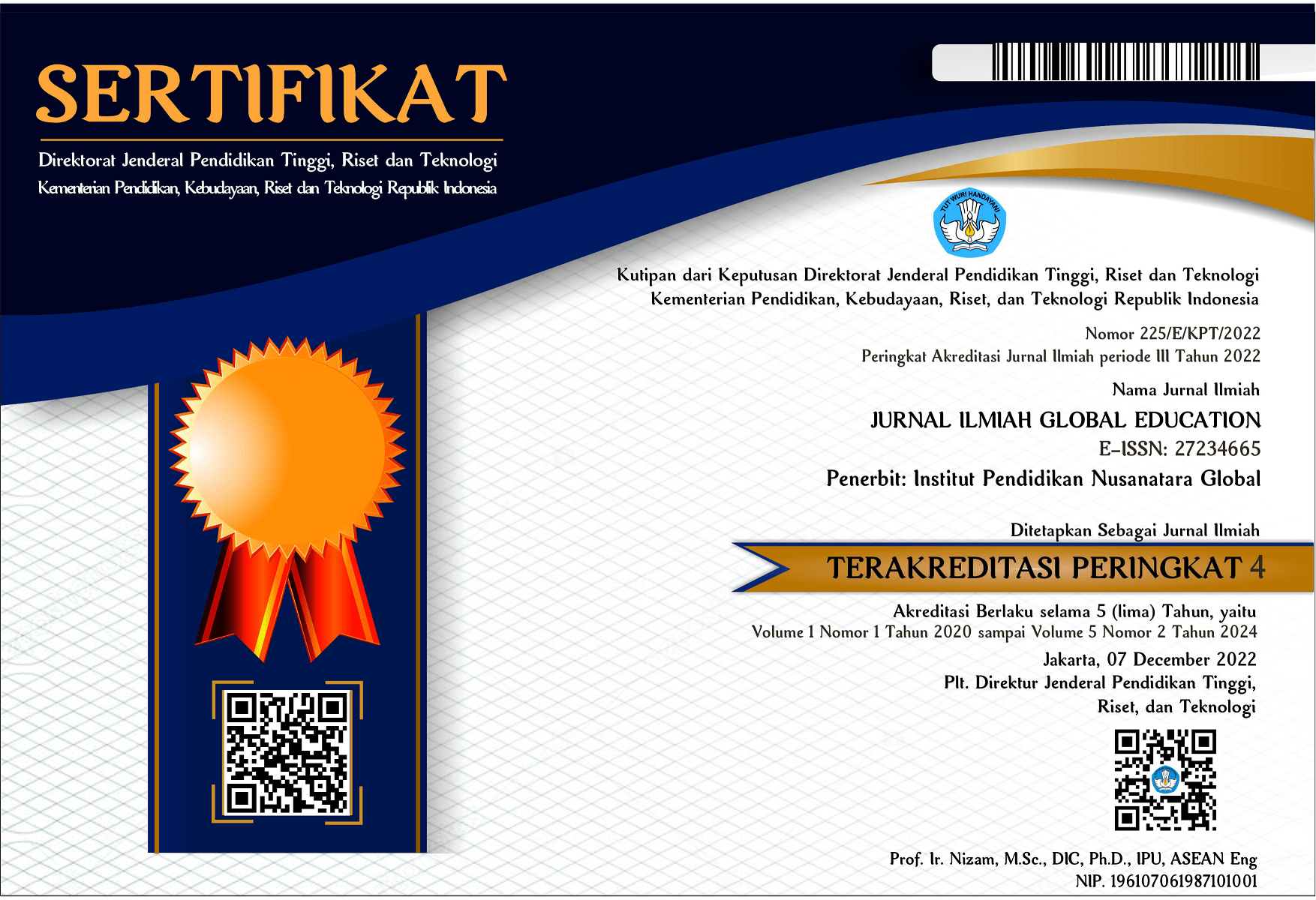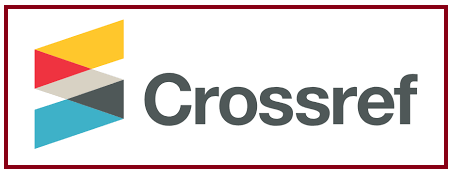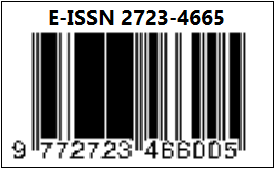Integrasi Circuit Simulator pada LMS untuk Meningkatkan Hasil PBL: Studi Kasus Mata Kuliah Elektronika
DOI:
https://doi.org/10.55681/jige.v5i1.2448Keywords:
problem-based learning, ciriuit simulator, electronicsAbstract
Mata kuliah Elektronika sering dianggap sulit oleh banyak mahasiswa karena memerlukan pehamanan yang mendalam tentang teori dan konsep dasar elektronika. Metode pembelajaran inovatif seperti Problem-Based Learning (PBL) menjadi sangat penting untuk mempermudah pemahaman, meningkatkan hasil belajar dan memperkaya keterampilan praktis siswa. PBL adalah metode belajar yang menggunakan masalah nyata sebagai platform untuk mempromosikan pembelajaran. PBL dinilai dapat meningkatkan keterampilan kritis, solusi masalah, dan komunikasi. Metode ini memungkinkan pelajar bekerja secara kolaboratif dalam grup untuk mencari solusi masalah. Oleh karena itu pada studi ini diusulkan sebuah integrasi Circuit Simulator pada Learning Management System (LMS) untuk meningkatkan hasil PBL pada mata kuliah Elektronika. Dari hasil eksperimen menunjukkan bahwa metode yang diusulkan dapat menaikkan kelulusan sebesar 93,18% dibandingkan dengan kelas kontrol sebesar 85,64%. Metode ini diharapkan dapat diterapkan secara berkelanjutan sehingga dapat menurunkan tingkat ketidaklulusan mata kuliah Elektronika.
Downloads
References
Çakıl Dinçer, G. (2021). The Relationship og Generation Z with Digital Technology. Uluslararası Anadolu Sosyal Bilimler Dergisi, 5(1), 215–228.
Damarwan, E. S., Hakim, M. L., Wardhana, A. S. J., & Kholis, N. (2021). Development of Electrical Circuit Learning Media Using Virtual Simulation. Journal of Physics: Conference Series, 2111(1), 1–9. https://doi.org/10.1088/1742-6596/2111/1/012042
Gumisirizah, N., Muwonge, C. M., & Nzabahimana, J. (2024). Effect of problem-based learning on students’ problem-solving ability to learn physics. Physics Education, 59(1), 1–11. https://doi.org/10.1088/1361-6552/ad0577
Haryati, I., Santoso, I., Sudarmaji, Rikfanto, A., Mulyati, R. E. S., & Megawati, S. (2022). Upaya Meningkatkan Kompetensi Guru-Guru Bahasa Jerman Melalui Pelatihan Penelitian Tindakan Kelas. Prima : Portal Riset Dan Inovasi Pengabdian Masyarakat, 1(3), 65–74. https://doi.org/10.55047/prima.v1i3.214
Hastjarjo, T. D. (2019). Rancangan Eksperimen-Kuasi. Buletin Psikologi, 27(2), 187. https://doi.org/10.22146/buletinpsikologi.38619
M Ramdhani, Sri Aprillia, B, Ashari Oktavia, D. (2023). Simulasi Rangkaian Elektronika Dasar dengan Circuit Simulator. Penerbit Informatika. https://openlibrary.telkomuniversity.ac.id/pustaka/205089/simulasi-rangkaian-elektronika-dasar-dengan-circuit-simulator.html
Magano, J., Silva, C., Figueiredo, C., Vitória, A., Nogueira, T., & Dinis, M. A. P. (2020). Generation Z: Fitting project management soft skills competencies—A mixed-method approach. Education Sciences, 10(7), 1–24. https://doi.org/10.3390/educsci10070187
Meesuk, P., Sramoon, B., & Wongrugsa, A. (2020). Classroom Action Research-based Instruction: The Sustainable Teacher Professional Development Strategy. Journal of Teacher Education for Sustainability, 22(1), 98–110. https://doi.org/10.2478/jtes-2020-0008
Ramdhani, M, Aprillia, B. S., & Kustiawan, I. (2021). The Effectiveness of Problem-Based Learning Based on the Learning Management System on Critical Thinking Skills of Electronics Course Students. Invotec, 2, 158–166. https://ejournal.upi.edu/index.php/invotec/article/view/37699%0Ahttps://ejournal.upi.edu/index.php/invotec/article/download/37699/16863
Ramdhani, Mohamad. (2021). Elektronika Dasar. Penerbit Erlangga.
Rosyidi, A. Z. (2018). The Effectiveness of Problem Based Learning (PBL) Method in Teaching Reading. IJECA (International Journal of Education and Curriculum Application), 17-22. https://doi.org/10.31764/ijeca.v0i0.1972
Saputra, D. H., Mahariyanti, E., & Irwansah, I. (2024). EFEKTIFIVITAS PEMBELAJARAN IPA MENGGUNAKAN MODEL PEMBELAJARAN PROBLEM BASED LEARNING TERHADAP KEMAMPUAN BERPIKIR KRITIS . JURNAL ASIMILASI PENDIDIKAN, 2(1), 7-13. https://doi.org/10.61924/jasmin.v2i1.24
Santos, J., Figueiredo, A. S., & Vieira, M. (2019). Innovative pedagogical practices in higher education: An integrative literature review. Nurse Education Today, 72, 12–17. https://doi.org/10.1016/j.nedt.2018.10.003
Seibert, S. A. (2021). Problem-based learning: A strategy to foster generation Z’s critical thinking and perseverance. Teaching and Learning in Nursing, 16(1), 85–88. https://doi.org/10.1016/j.teln.2020.09.002
Simanjuntak, M. P., Hutahaean, J., Marpaung, N., & Ramadhani, D. (2021). Effectiveness of problem-based learning combined with computer simulation on students’ problem-solving and creative thinking skills. International Journal of Instruction, 14(3), 519–534. https://doi.org/10.29333/iji.2021.14330a
Sistermans, I. J. (2020). Integrating competency-based education with a case-based or problem-based learning approach in online health sciences. Asia Pacific Education Review, 21(4), 683–696. https://doi.org/10.1007/s12564-020-09658-6
Sukackė, V., Guerra, A. O. P. de C., Ellinger, D., Carlos, V., Petronienė, S., Gaižiūnienė, L., Blanch, S., Marbà-Tallada, A., & Brose, A. (2022). Towards Active Evidence-Based Learning in Engineering Education: A Systematic Literature Review of PBL, PjBL, and CBL. Sustainability (Switzerland), 14(21), 1–31. https://doi.org/10.3390/su142113955
Valiente, D., Payá, L., Fernández de Ávila, S., Ferrer, J. C., Cebollada, S., & Reinoso, O. (2019). Active learning program supported by online simulation applet in engineering education. SIMULTECH 2019 - Proceedings of the 9th International Conference on Simulation and Modeling Methodologies, Technologies and Applications, Simultech, 121–128. https://doi.org/10.5220/0007916401210128
Yao, Q., Sun, P., Hu, L., Zhu, X., & Ni, H. (2008). Effective Iframe-based strategy for processing dynamic data in embedded browser. Proceedings - 2008 International Conference on Advanced Computer Theory and Engineering, ICACTE 2008, 2007, 538–542. https://doi.org/10.1109/ICACTE.2008.23
Yolana Nursyaftri, Waan Purwanto, Hasan Maksum, Y. H. (2023). Development of Flipbook Based E-Module with a Project Based Learning Model In The Subject of Electricity and Electronics.pdf. Pakar Pendidikan, 21(1), 228–244.
Downloads
Published
How to Cite
Issue
Section
License
Copyright (c) 2024 Mohamad Ramdhani, Bandiyah Sri Aprillia, Sugondo Hadiyoso

This work is licensed under a Creative Commons Attribution-ShareAlike 4.0 International License.













